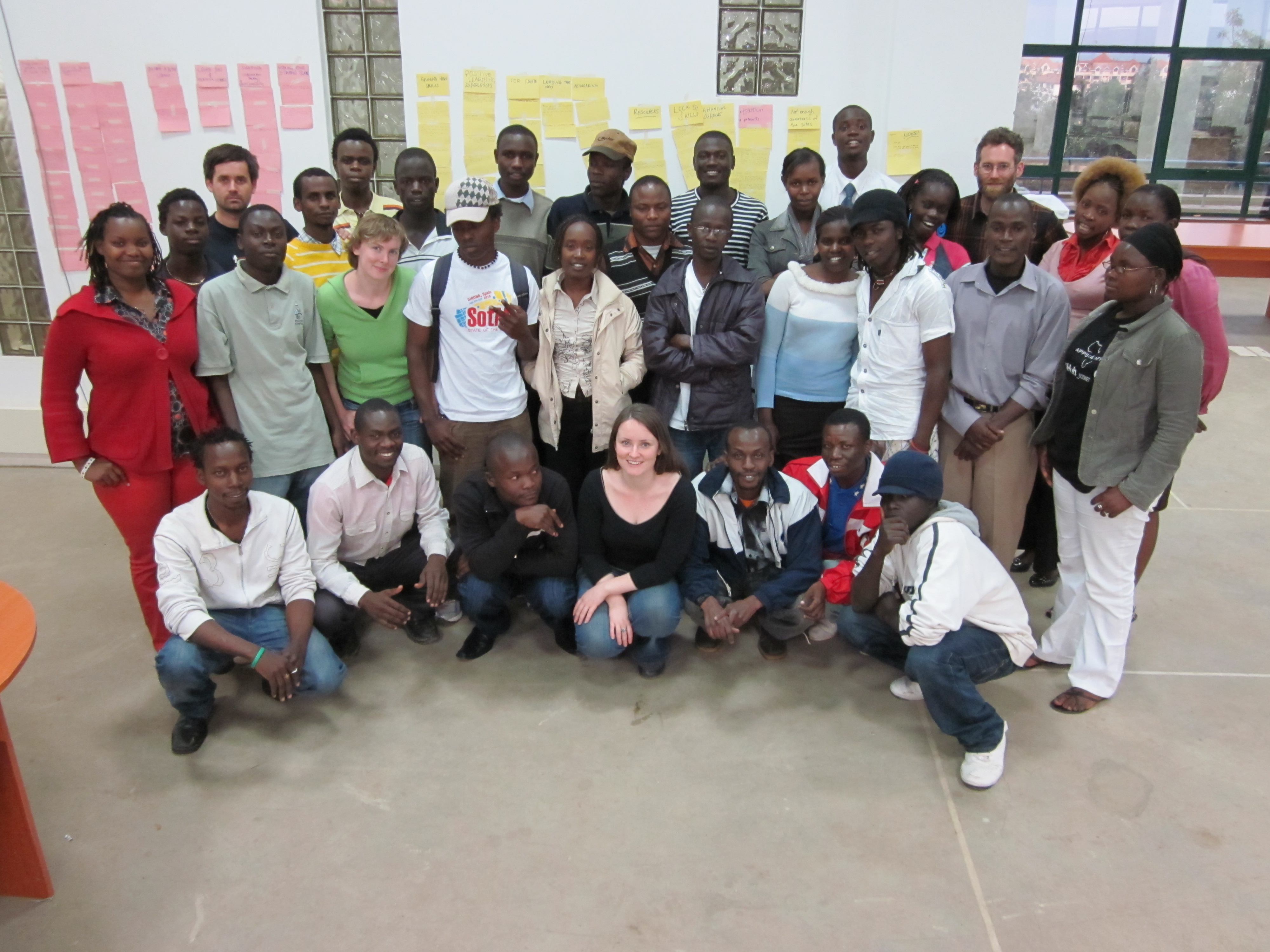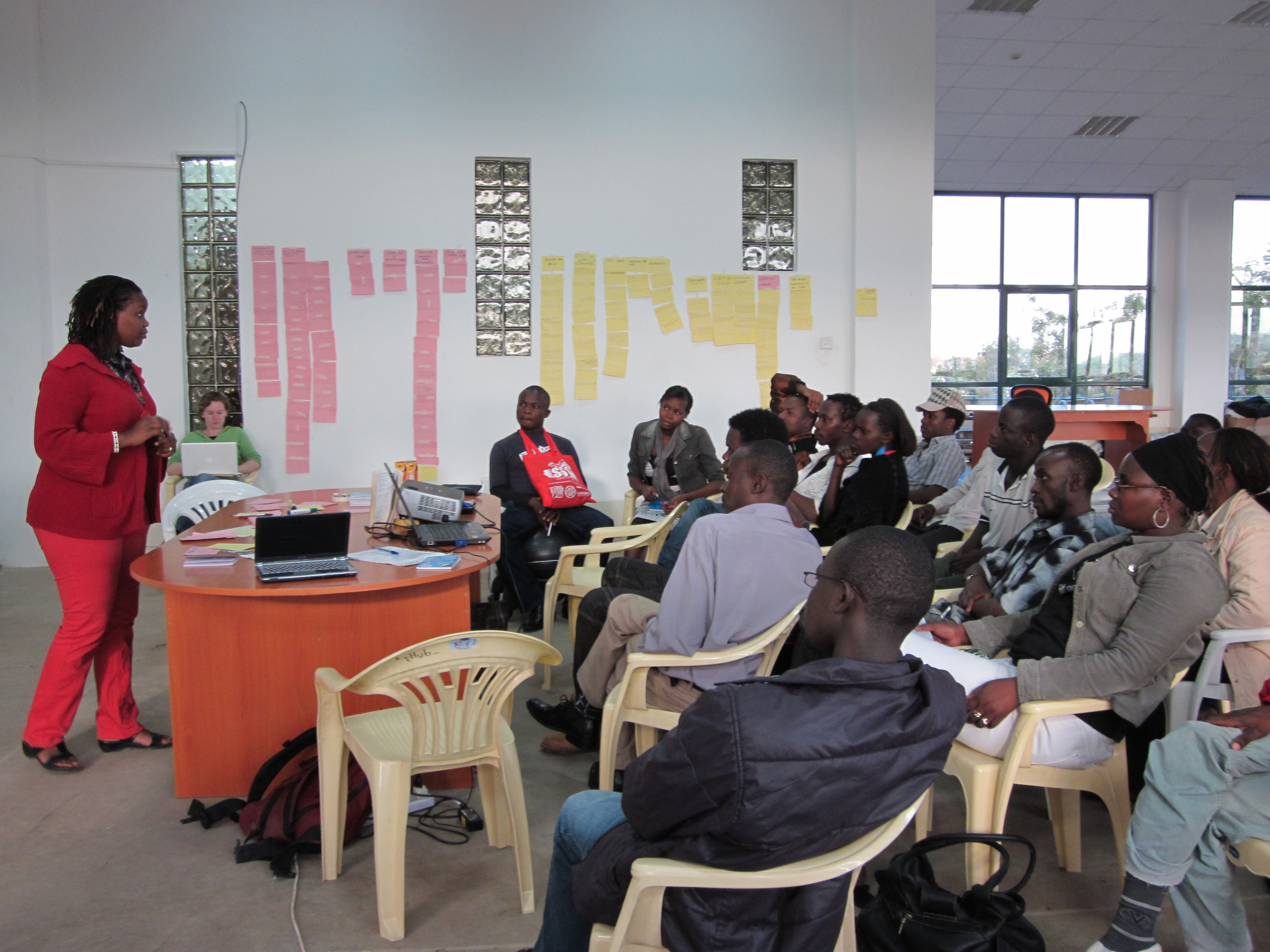This video is brought to you by the Kibera News Network (KNN) team. The documentary explores some of the urban risks faced by residents of Kibera – communicable diseases, railway accidents and fires.  The video was screened in Nairobi, Kenya during the launch of the 2010 World Disasters Report – focus on urban risk. The KNN team thanks Markham Nolan from Storyful for his support in producing the video.
World Disasters Report 2010 – A KNN Production
by: jamie September 24th, 2010 comments: 0
2010 World Disasters Report: Focus on urban risk
by: jamie September 21st, 2010 comments: 0
The The International Federation of Red Cross and Red Crescent Societies (IFRC) today launched the World Disasters Report (WDR) in Nairobi, Kenya. This marks the first time in its 20 years of publication that the WDR launch has taken place outside of Geneva. Â The theme of the 2010 report is urban risk.
The WDR 2010 explores the following topics:
- Avoiding the urbanization of disasters
- Urban disaster trends
- Starting over: community rights and post-disaster response
- Urban violence (and inequity)
- Urban risk to health
- Urbanization and climate change risk
- Urban governance and disaster risk reduction
The launch focused (and rightly so) on vulnerable urban communities, their risks and their efforts to mitigate those risks. Map Kibera was invited by the IFRC to participate in the launch and showcase the work of young Kibera residents in making their communities visible by literally putting them on the map, and by telling their stories through Voice of Kibera and Kibera News Network. The Kibera News Network (KNN) team worked together with Markham Nolan of Storyful to produce a short documentary about some of the many risks Kibera residents face on a daily basis – namely, infectious diseases, train accidents and fire. Keep your eyes out for the video on the KNN Youtube channel and also on the Storyful blog in the next couple of days.
Speaking during the panel discussion, Dr. James Kisia of the Kenya Red Cross highlighted the need for local community involvement in disaster risk reduction and disaster response. For example, the Red Cross responds to approximately 144 fires per month however their responders are not necessarily familiar with the areas they work in, particularly the informal settlements (or slums), in which these fires occur. The team thus needs guidance and support by the local community in order to access affected areas. Local communities are integral for the success of their response efforts, but are also involved in designing localized disaster risk reduction strategies.
Matthius Schmale from the IFRC reiterated the need for community involvement when he discussed the importance of urbanization to the development of a country. He emphasized that countries shouldn’t aim to stifle growth in urban areas, but instead put people at the forefront of the development and planning of their own communities.
Hon. Robinson Njeru Githae, Minister of Nairobi Metropolitan Development acknowledged the one of the challenge of working in informal settlements is the legal status of residents. He said that this is the first time the government has recognized the existance of slum residents and that this is the 1st step in improving the conditions in slums, including providing government services such as clean water, schools and health care.
The Kibera teams were highly engaged and interested in the feedback from the media houses, panelists and audience at the launch of the World Disasters Report today. I was personally very excited to hear that Daniel von Rege, the field coordinator for MSF Belgium’s Kibera project has the Voice of Kibera site bookmarked on his computer and checks it every few days to find out what’s happening around Kibera!
A meeting of the minds – mappers, videographers, editorial board & SMS reporters
by: jamie September 8th, 2010 comments: 0
The Map Kibera family is continually growing. The groups and activities – Mapping, Voice of Kibera, Kibera News Network – we are involved with multiply and evolve in exciting and unexpected ways. Each group has its own history and set of current activities. Everyone involved has a unique talents, skills and interests, which contribute to the success of the Map Kibera programme.
These projects come together intuitively and almost seamlessly online. One challenge that arises however is that the groups and individuals do not necessarily collaborate offline (very often).
On August 30th, 2010 the Map Kibera family (about 40 people in total) came together for the first time at the NaiLab. The main objective of the day was for everyone to get to know each other and the work that they’ve been doing. A second objective was to explore how we could collaborate and work more closely offline. Most importantly we wanted to recognize the achievements and challenges of each group so far and identify goals for the future.
A summary of the achievements of all 3 groups
- Networking and meeting new people in Kibera, Kenya and around the world
- Recognition of our work within the community and globally
- Leading the way in terms of information sharing in Kenya
- Positive learning experiences within the group(s)
- Learning more about the people and geography of Kibera
- Gaining new skills (e.g. computer skills, camera handling, video editing, GIS including OpenStreetMap, etc.)
And the challenges
- Hostility and suspicion from some community members which sometimes leads to demands for payment in exchange for information
- Difficulty in raising awareness about the different websites within the community
- Limited financial resources result in the need to balance volunteering for the group with the need to make a living
- Lack of professional skills
- Technical glitches related to the different web-based software we use
- Lack of equipment and other resources
Group and personal goals:
- To work together to make one strong team
- To share information and helping the community in Kibera
- To create jobs and train others
- To become a better public speaker
- To gain personal, professional skills
- To improve technical skills
- To become professional media group(s) handling 1st hand information from Kibera
We are committed to adding to the list of achievements, addressing the challenges and, over time, meeting the personal and group goals. Everyone is looking forward to the collaboration and work online and (more importantly) offline!
A special thanks to Rose Nyawira who joined us from Community Clean Services (CCS) – we look forward to working with her again in the near future!


